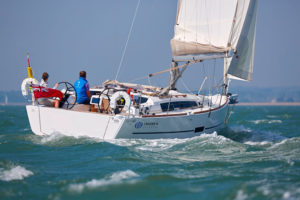Mars technology developed for maritime navigation

The UK Quantum Technology Hub Sensors and Timing, led by the University of Birmingham, has awarded funding for research to improve the precision of maritime navigation.
The project, funded by £600,000 from the Hub’s Partnership Resource Fund (PRF), is being led by Professor Tom Pike at Imperial College London and Dr Simon Calcutt at the University of Oxford.
It aims to develop the missing component to transform an existing gravity gradiometer into a hybrid instrument for use in maritime environments.
The instrument used is based on the MEMS seismometers previously developed by Professor Pike for the NASA InSight mission, which is currently operating on the surface of Mars.
 It will allow navigation that will measure localised gravity fields produced by underground conditions, which can be matched to gravity maps, to establish a vessel’s precise location.
It will allow navigation that will measure localised gravity fields produced by underground conditions, which can be matched to gravity maps, to establish a vessel’s precise location.
Receiving stable and accurate location data whilst at sea is vital, and this has not yet to date been achieved due to satellite vulnerabilities.
“This grant will help us transfer the technology we developed for Mars back to Earth, or more specifically onto our oceans,” says Professor Tom Pike. “We know we have the robustness to survive a trip to another planet. Now we want to show we have the sensitivity to detect gravitational changes while rocking on a ship. It’s more of a challenge than detecting marsquakes.”










